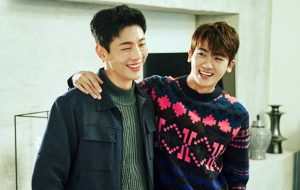“Healer” (힐러)

A smart, 20-episode series that was well cast, it offered intrigue, action, comedy and a bittersweet love story that ends in such a way that the viewer is left assured that the couple stays together forever. This is also one of the rare Korean dramas I’ve seen where the lead characters aren’t involved in a love triangle (though there is a sub-plot where unrequited love between secondary cast members plays a role).








